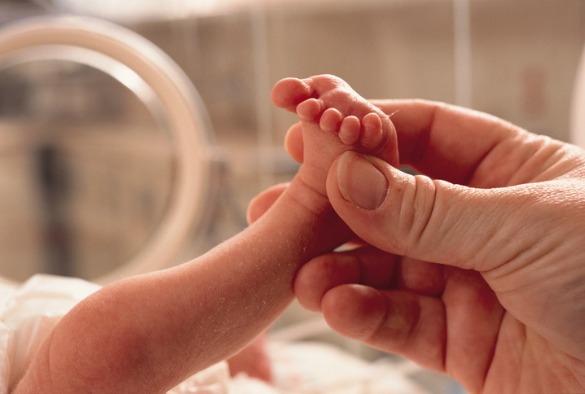
Professor Mark Turner is a Professor of Neonatology and Research Delivery in the University’s Institute of Translational Medicine:
New guidance for clinicians and parents on extremely preterm infants has been published by the British Association of Perinatal Medicine (BAPM) this week.
The headline is that more babies born extremely early will have treatment that tries to keep them alive and minimises the risk of problems after preterm birth. The previous guideline recommended that babies born at 22 weeks of pregnancy should only have care focussed on survival if they are part of a research study. In the past few years, a number of studies have reported how to support babies born at 22 or 23 weeks of pregnancy. The community of professionals and advocates for families recognises that these new studies should change the way that we look after these very premature babies.
The story behind this headline is that dialogue between family advocates and professionals has led to improved understanding of how to work together in these very challenging situations. Starting treatment to keep babies alive may not help them if they die soon afterwards or end up with a very poor quality of life. The strong partnership behind this guideline allowed all these issues to be discussed.
Key features of the guideline are:
- The guidelines promote a personalised approach to each pregnancy that reflects the specific risks that affect that pregnancy
- Numbers like 22 weeks or 23 weeks should not be the only influence on discussions: each pregnancy deserves a thorough balance between risks and potential benefits
- The approach is driven by best practice in communication and counselling
- Each pregnancy at risk of birth before 27 weeks, and each birth before 27 weeks, will have a specific plan
- All babies will be cared for in the way that parents and professionals agree is the best for each baby. Some will have care that is focused on survival. Others will have comfort or palliative care.
The guideline will help families during discussions about what is best for babies in these stressful situations.
The guideline will also support staff by supporting them in their own discussions and their discussions with families.
The take home messages are:
- This guideline reflects contemporary understanding of how to make decisions about the most vulnerable babies in partnership with parents in the light of the information available now to us.
- More extremely premature babies will receive intensive care and some of them will survive.